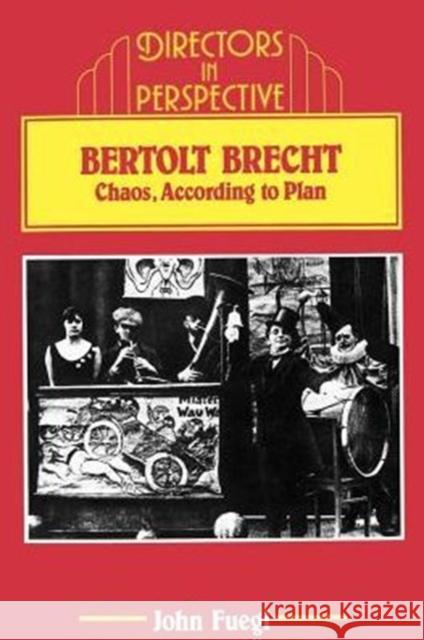Bertolt Brecht: Chaos, According to Plan » książka
Bertolt Brecht: Chaos, According to Plan
ISBN-13: 9780521282451 / Angielski / Miękka / 1987 / 240 str.
This is the first full-length study in any language of Bertolt Brecht's day-to-day work as a theatre director. Professor Fuegi has researched his subject extensively over many years, and this book is the result of interviews with Brecht's closest associates (including Helene Weigel, Angelika Hurwicz, Elisabeth Hauptmann and Hans Bunge), inspection of the unpublished typescripts recording several years of Brecht rehearsals at the Berlin Ensemble, and consultation of archival materials in Moscow, Berlin and Harvard University. Although Brecht is acknowledged worldwide as having changed our whole conception of playwriting, acting and directing, virtually nothing has been previously published which tells how he worked and reacted with actors, and how his productions were actually put together in rehearsal. John Fuegi now tells the story, evoking the excitement and controversy which surrounded Brecht's work on the stage. He examines the way Brecht applied his manic but brilliant character, in both personal and professional life (though these cannot easily be separated), in order to create the tension and confusion, contradiction and chaos, from which his best productions emerged. He shows how the plays must be seen in the light of their evolution on the stage through innumerable arduous rehearsals, themselves conditioned by the intense magnetism, spontaneity and unpredictability of Brecht's personality. Most importantly, the book charts the evolution of Brecht's own dramatic theory from his early rejection of Stanislavskian realism and his demands for emotional coolness from the spectator to his later acceptance of the power of theatre to involve, even to move, the audience. The book goes behind the scenes to look at the playwright's negotiation of contracts for his productions, commercial agreements which were often highly beneficial to himself but markedly less so to his collaborators such as Kurt Weill, Ruth Berlau and Elisabeth Hauptmann, and it talks frankly of Brecht's use of the 'casting couch', bestowing and withholding favours with the same volatility that characterized his remarkable love-life. The story is accompanied by illustrations, many of which have not been published before. It provides a much-needed antidote to some of the more sterile accounts of Brechtian theory, concentrating very much on the 'practice' but remaining at the same time vividly aware of the social and political context in which and about which Brecht was writing. The book will be of interest to scholars and students of theatre and of dramatic and comparative literature, and it is presented in a lively style that should also appeal to the general reader.











